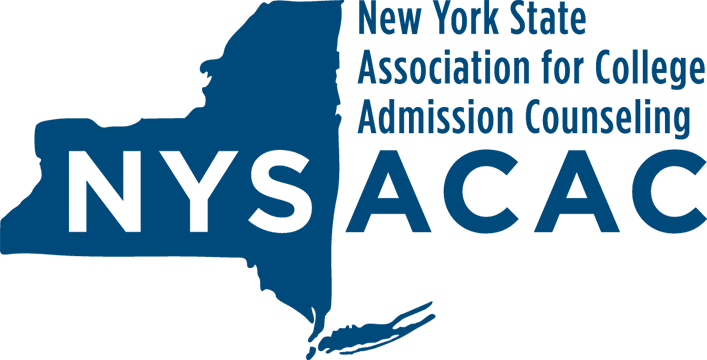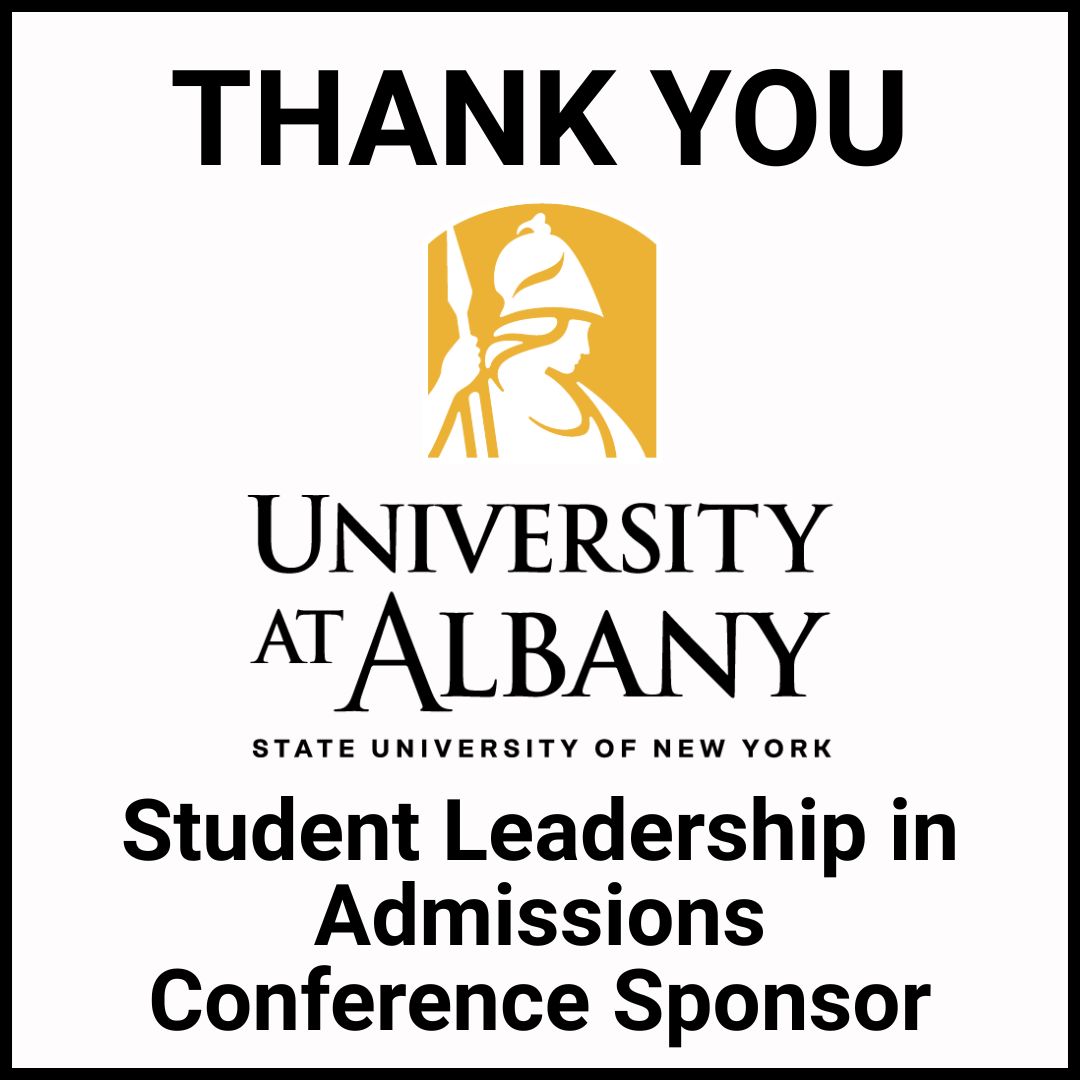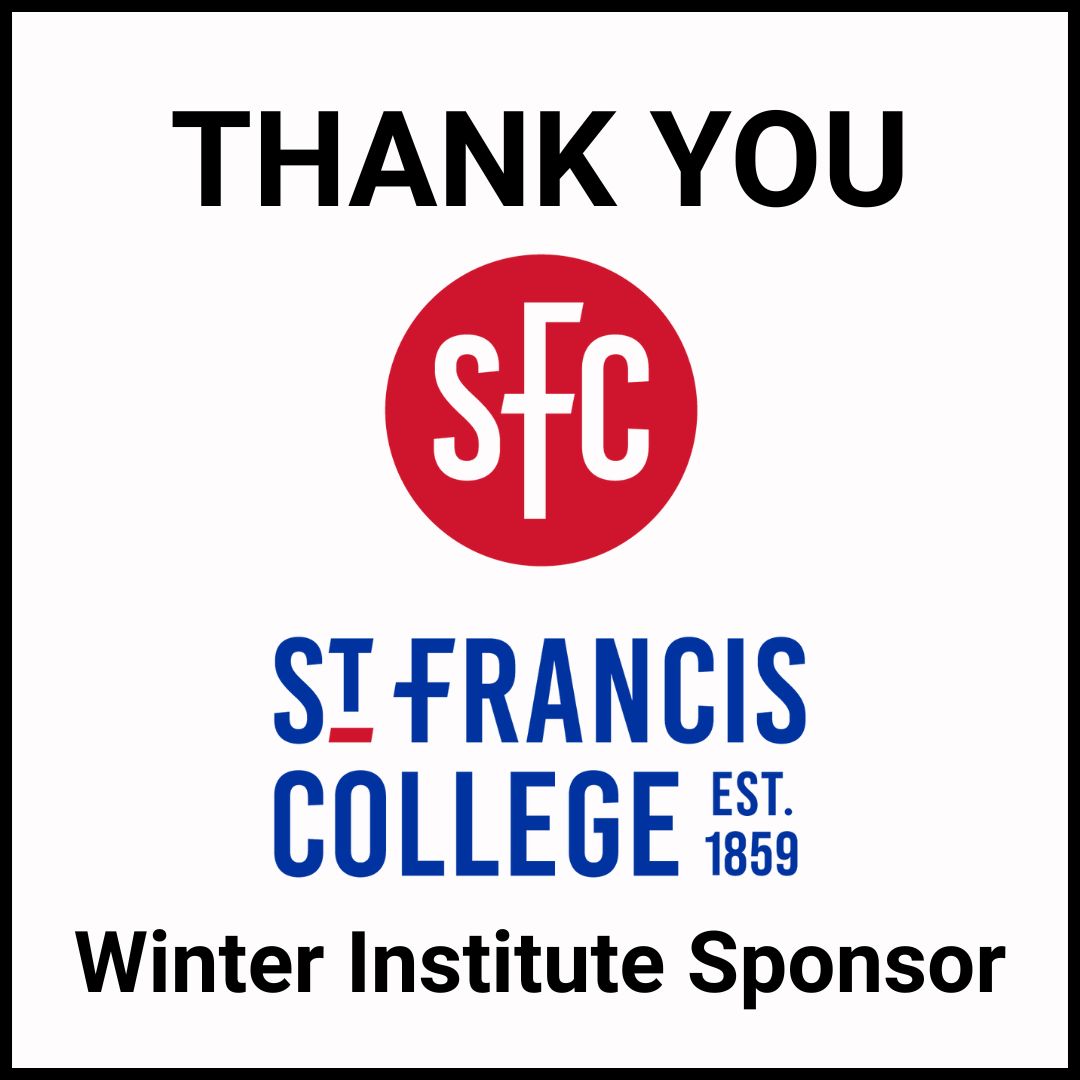|
Advocacy: The Issues
Take a closer look at our 2025 NYSACAC Legislative Advocacy Day.
“I’m convinced of this: Good done anywhere is good done everywhere. For a change, start by speaking to people rather than walking by them like they’re stones that don’t matter. As long as you’re breathing, it’s never too late to do some good.”
- Maya Angelou
Take Action with NACAC
As the voice of the college admission counseling profession, NACAC advocates for the best interests of students and members.
Learn more about each of NACAC priorities - https://www.nacacnet.org/advocacy/take-action
2025 NYSACAC Legislative Agenda
Click here to view the 2025 Legislative Agenda
In support of increasing student aid and support programs, New York State can deliver access and equity to all students, specifically those from historically marginalized communities. Higher education is the main vehicle to move individuals up an income bracket. However, by making it unattainable, students will struggle to move out of their current financial situations for generations to come. Thus, lowering the percentage of the ability to reinvigorate the NYS economy by having higher income earners reinvest in NYS long term. With this, the following are our focus of advocacy in this legislative cycle:
Also featured on this page for greater knowledge of our advocacy work:
Student Financial Aid
Problem
As of January 15, 2025, approximately 2.44 million New Yorkers collectively owe $94.4 billion in student debt. New York's college students are a vital part of the state’s economy and future workforce. In Fall 2024, the State University of New York (SUNY) system enrolled 376,155 students, with an operating budget of $12.95 billion. It is imperative that we provide the necessary financial aid support to our students, especially those who are low-income and students of color, as they are more likely to carry the burden of loan debt and less likely to complete their degrees.
Context
-
The maximum Federal Pell Grant award remains from the previous cycle (2023-2024) at $7,395 for the 2024-2025 academic year.
-
The current TAP award amount is $5,665, remaining the same as last year. This should increase to $7,070.
-
The total cost of attendance at every four-year institution in New York exceeds the combined maximum Pell + TAP grants.
-
New York’s students are still dealing with the impacts of inflation, accessing basic needs, and the rising cost of college attendance.
-
New York’s students are also dealing with the change to the Free Application for Federal Student Aid (FAFSA), which has a direct relation to the NYS aid program known as TAP.
-
The erosion of state support and the creation of growing funding gaps is translating into a decline in the quality of student services and education.
-
State aid can be used for tuition only, leaving students to cover significant additional costs of going to college; for example, to cover room and board, which many New York students struggle to afford.
Next Steps
In the Fiscal Year (FY) 2026 Executive Budget, Governor Kathy Hochul has proposed a record $252 billion in spending, marking a 3.6% increase from the previous fiscal year. This budget includes significant investments in education, with a notable emphasis on financial aid to support students, particularly those from underrepresented communities. To serve our students, the state must invest more in financial aid and pass the following legislation:
-
Senate Bill S2565 – This allows HESC to consider an applicant's change in income due to job loss when determining eligibility and award amounts for the Tuition Assistance Program (TAP).
-
Senate Bill S3369- This allows students enrolled in certain postsecondary education experience or transition programs to receive awards from the Tuition Assistance Program (TAP).
-
Assembly Bill A3081/ Senate Bill S2247– This renames the state aid for certain independent institutions of higher learning to the Leonard P. Stavisky Student Success Grants and requires these institutions to report on how the state aid received supports student success.
-
Assembly Bill A00946/Senate Bill S01287 - Expands eligibility for the New York state excelsior scholarship award to certain applicants enrolled on a part-time basis or in a BOCES or another approved vocational program. Both are currently in the Higher Education Committee(s).
^ Back to top
Opportunity Programs
Problem
Opportunity Programs are designed to support the neediest students, aiming to improve retention and graduation rates among those facing disadvantages in accessing postsecondary education. Qualification for these programs requires students to provide extensive documentation, creating hurdles that make it challenging to extend opportunities to those who could benefit the most.
The State University of New York (SUNY) and the City University of New York (CUNY) are known for providing high-quality education at a lower cost than other universities. According to a report from the Office of the New York City Comptroller, half of CUNY students come from households with incomes below $30,000, and 85% are people of color. We must continue to increase support for all Educational Opportunity Programs by 20%.
Context
-
Last year, Governor Hochul's budget strengthened New York's public higher education institutions and provided support needed to students and families. She increased operating assistance to SUNY and CUNY by $100 million, bringing the total to $1.3 billion; allocated $1.13 billion for capital projects, including $710 million for SUNY and $424 million for CUNY; and expanded the TAP program by increasing the minimum award, raising income eligibility thresholds, and extending eligibility to part-time students at proprietary colleges.
-
The Executive Budget proposal allocates $269 million in new state support for SUNY and CUNY campuses, including:
-
$20 million for ACE and ASAP, which support academic and career advisement, tuition grants, textbooks, and transportation costs ($12 million SUNY, $8 million CUNY).
-
$15 million in artificial intelligence investments ($10 million SUNY, $5 million CUNY).
Next Steps
Opportunity Programs are vital to the success of higher education access in New York State, which directly affects student outcomes. This can be support by the proposed bills outlined below:
-
Senate Bill S02059-Directs the boards of trustees of SUNY and CUNY to create a free or reduced meal plan to aid students whose household incomes are below the federal poverty line, students participating in educational opportunity programs under section three hundred fifty-five-d of this article and students receiving federal Pell grants. Referred to the Senate Higher Education Committee on Jan 15, 2025.
College Students Experiencing Basic Needs Insecurity
Problem
Current policies and programs do not adequately address college students' basic needs, including food, housing, and mental health counseling. Recent data shows that 40.4% of CUNY students face food insecurity, 29.8% experience housing insecurity, and 83% struggle with mental health challenges. These issues highlight the urgent need for comprehensive support to ensure students' well-being and academic success.
Context
-
According to a recent report, 40% of college students reported experiencing food insecurities in 2023, consistent to 40% in 2022, compared to 38% in 2021, 32% in 2020 and 19% in 2019. 36% of students have been reported to have dropped out of college due to the inability to afford food, up 2% year over year. Another third indicated food insecurity has “impacted their ability to study”.
-
According to the National Postsecondary Student Aid Study (NPSAS), 23% of undergraduate students and 12% of graduate students face food insecurity, indicating that over 4 million students lack reliable access to food. Additionally, 8% of undergraduates and 5% of graduate students are grappling with houselessness, affecting more than 1.5 million students.
-
Approximately 22.6% of undergraduate students indicate experiencing low or very low food security, while an additional 11.9% report marginal food insecurity. The National Center for Education Statistics (NCES) released data estimating that around 3.9 million undergraduates face food insecurity, where 'food insecurity' is defined in this context as students having low or very low food security.
-
Housing insecurity among college students is high and has risen even higher. Data from the National Postsecondary Student Aid Study illustrates Data from the National Postsecondary Student Aid Study indicates that 8.0% of undergraduate students and 4.6% of graduate students report experiencing houselessness. This means that approximately 1.4 million undergraduates and 166,000 graduate students are experiencing houselessness nationwide. Reports show that the houselessness rate was 14% in 2021 for students at both two-year and four-year institutions. Additional counseling and support staff at colleges can help students address the mental health and logistical challenges associated with housing insecurity.
Next Steps
New York State can continue to address these issues by investing further in services for basic needs-insecure college students by supporting the proposed bills outlined below.
-
Assembly Bill A02645/Senate Bill S02637 - Relates to establishing the “Hunger-Free Campus Act”, appropriation. This legislation creates the hunger-free campus act, aimed at addressing food insecurity on public college campuses. Currently in the Assembly Higher Education Committee. (Senate Bill S1151 passed June 2022). There are currently no votes for this bill in this legislative session. Referred to higher education on 01/14/2025.
-
Assembly Bill A00302/Senate Bill S02146 - Relates to requiring at least a ratio of one clinical, non-student mental health staff member per one thousand students on all SUNY and CUNY campuses. Both are currently in the Senate Higher Education Committee(s). There are currently no votes for this bill in this legislative session. Referred to higher education on 1/5/22.
-
Assembly Bill A00446/Senate Bill S01077 - Authorizes commissioner of education to do a study on food insecurity at private and public colleges. There are currently no votes for this bill in this legislative session. Referred to higher education on 1/3/24.
^ Back to top
Alignment with Governor Hochul in Support for Educational Access, Success, and Equity
In addition to all that is referenced above, we align with the mission of improving the educational system to best support our students’ future academic and economic success with a focus on equity. We also want to acknowledge the New York State Longitudinal Data System (SLDS).
Governor Kathy Hochul continues to emphasize the importance of the SLDS, which integrates data across education and workforce sectors. In her 2025 State of the State address, she highlighted the SLDS as a key initiative to improve educational strategies and workforce outcomes. The system will provide valuable insights for policymakers, educators, and the public to drive better outcomes for students and workers. New York is also working on a Data Governance Program to ensure the security and privacy of the data, further supporting the goal of improving educational opportunities and career pathways. While the system is already operational, ongoing efforts continue to expand and enhance its capabilities, including integrating additional data sources and ensuring privacy and security.
We support the adoption of a P-20 cross-agency data governance system that would help leaders answer policy challenges, target resources, and better support families and students on their educational journey.
^ Back to top
Additional Legislation to Support Our Mission, Student Needs, Success, and Equity
1. Tuition Assistance Program (TAP) and Financial Aid
These bills focus on expanding or improving the financial aid system, especially TAP:
-
Assembly Bill A02354 - Expands TAP eligibility to graduate students and makes optional semesters eligible.
-
Senate Bill S01498 - Modifies criteria for determining TAP awards, eliminating distinctions between dependent and independent students.
-
Assembly Bill A04263 - Increases the income eligibility threshold for TAP up to $150,000.
-
Senate Bill S00027 - Expands TAP awards for students experiencing homelessness.
-
Assembly Bill A508/Senate Bill S3779 - Increases the maximum years of study under TAP.
2. Food Insecurity and Student Support
These bills address critical needs like food insecurity and student services:
-
Assembly Bill A01724/Senate Bill S02637 - Provides grants to address food insecurity at public institutions.
-
Assembly Bill A04218/Senate Bill S02059 - Directs SUNY and CUNY to create free/reduced meal plans for students in need.
3. Mental Health and Faculty Support
These bills focus on enhancing the educational environment through mental health and faculty support:
-
Assembly Bill A01727/Senate Bill S02274 - Enacts the New Deal for CUNY, increasing faculty and counselor ratios.
-
Assembly Bill A01217 - Creates a grant program for adult students returning to college or seeking career education.
4. Student Loan and Financial Education
These bills focus on financial education and loan support:
-
Senate Bill S01125 - Establishes student loan repayment accounts and employer matching funds.
-
Assembly Bill A03584 - Requires financial literacy instruction for students in grades 9-12.
-
Assembly Bill A01337 - Establishes a half-credit course in financial education for high school students.
-
Senate Bill S03331 - Requires financial literacy education for 11th-grade students.
5. Tuition and Residency Issues
These bills address tuition rates, residency, and scholarship programs:
-
Assembly Bill A940/Senate Bill S3982 - Establishes an appeals process for students denied in-state tuition.
-
Senate Bill S01836 - Prohibits TAP grants for students in for-profit colleges.
-
Senate Bill S02495 - Establishes a state prepaid tuition plan.
-
Senate Bill S3899 - Provides a $1000 scholarship for students with a 3.0 GPA attending NY state postsecondary institutions.
6. Fair Admissions and Non-Discrimination
These bills focus on creating more equitable admissions practices:
-
Senate Bill S3795 - Prohibits colleges from asking about an applicant's prior arrests or convictions during the pre-admissions process.
-
Assembly Bill A2125/Senate Bill S2237 - Enacts the "Fair College Admissions Act"; prohibits legacy admissions policies at colleges and universities in New York, declaring them discriminatory and inequitable.
7. Other Student Support
These bills focus on various aspects of student life and additional support programs:
-
Senate Bill S02495 - Establishes a prepaid tuition plan.
-
Senate Bill S00027 - Expands TAP for students experiencing homelessness.
-
Assembly Bill A03276 - Allows absence for certain personal reasons to be creditable for financial aid purposes.
^ Back to top
Visualization:
Student loan debt in the United States totals $1.773 trillion; annual growth resumed in 2024 following year-over-year (YoY) declines that began in 2023.

^ Back to top
A note from NYSACAC’s Government Relations Committee:
Thank you for being a part of our Legislative Advocacy Day, and sharing your time with us. If you would like to further the conversation or have any follow up questions, please feel free to reach out to us at [email protected]. We welcome the conversation and appreciate all the hard work you do!
A note from NYSACAC’s Government Relations Co-Chairs:
**Please note, none of this could have been accomplished without the hard work, dedication, and support of NYSACAC's Government Relations Committee members.
^ Back to top
|












